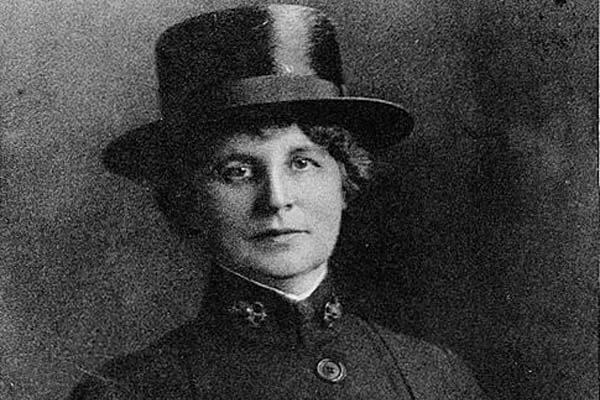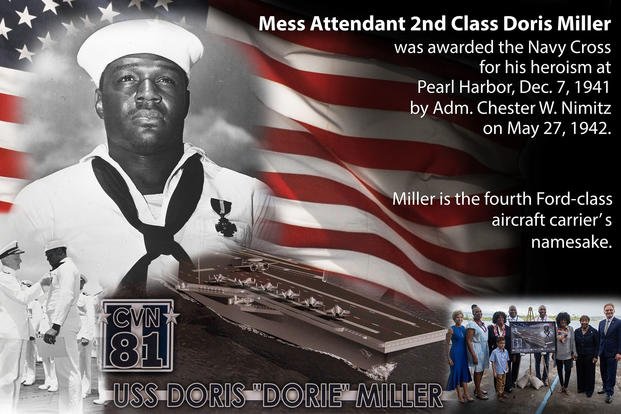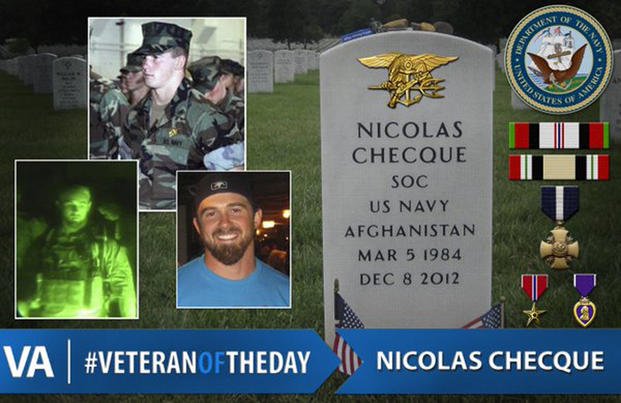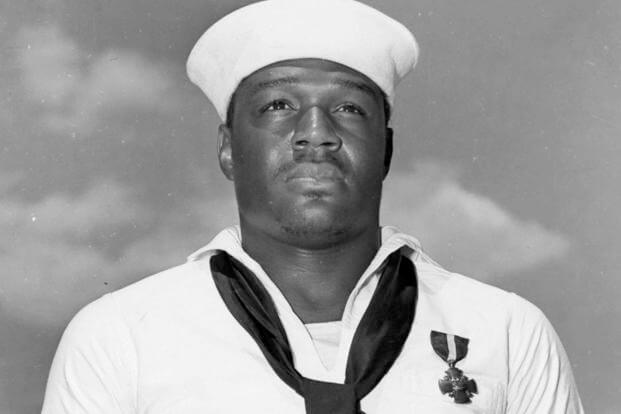The Navy Cross is the second-highest decoration awarded for valor in combat. These heroes saved numerous lives without regard to their own safety.

Lenah Higbee, First Woman to Receive the Navy Cross
Navy nurse Lenah Higbee was a barrier breaker. One of the first 20 female members of the service, Higbee not only was the first woman to receive the Navy Cross, but remains the only woman to do so non-posthumously.
Higbee, who eventually served as superintendent of the Navy Nurse Corps, was awarded the medal for "distinguished service in the line of her profession and unusual and conspicuous devotion to duty."
During World War I, Higbee and her nurses triaged and treated injuries from "shrapnel and high velocity projectiles" that were so severe "that [the nurses] never imagined it possible for a human being to be so fearfully hurt and yet be alive," according to "Nursing in the United States from 1900 to the Early 1920s."
Higbee remains a pioneer to this day, long after her death.
She was the first female sailor to have a ship named in her honor, the USS Higbee, which retired from the fleet in 1979.
A second ship, the USS Lenah H. Sutcliffe Higbee, was recently named for her. It is scheduled to enter the fleet in 2024.
Marine Lt. George Yarborough, an Original 'Devil Dog'
While his unit was pinned down by heavy machine-gun fire during the Battle of Belleau Wood in World War I, Marine Corps Lt. George Yarborough dashed from one shell hole to another, assisting his men until he was wounded by an exploding shell.
Severely injured, he refused aid until other wounded men in his unit received medical attention. He saved many lives that day, finally succumbing to severe gunshot wounds.
Yarborough is one of many from that battle that earned Marines the nickname, "Devil Dogs." German soldiers described them as "Teufel Hunden" or "Hounds from Hell" for their relentless ferocity in battle.

Doris 'Dorie' Miller, the First Black Recipient
Doris Miller, who went by Dorie, was one of the first heroes of World War II and was awarded the Navy Cross for actions during the 1941 attack on Pearl Harbor. His face was even used on a recruitment poster.
Miller was presented with the Navy Cross by Adm. Chester Nimitz, commander of the Pacific Fleet, in a ceremony on the aircraft carrier Enterprise.
Related: African-American Contributions in the Military.
"While at the side of his Captain on the bridge, Miller, despite enemy strafing and bombing and in the face of a serious fire, assisted in moving his Captain, who had been mortally wounded, to a place of greater safety, and later manned and operated a machine gun directed at enemy Japanese attacking aircraft until ordered to leave the bridge," according to the citation.
Miller was killed in action two years later when his ship, the USS Liscome Bay, a Casablanca-class escort carrier, took a Japanese torpedo.

Marine Lance Cpl. Christopher Adlesperger and the Battle for Fallujah
Posthumously awarded the Navy Cross for his actions in single-handedly eliminating 13 Taliban in a vicious firefight during the battle for Fallujah in 2004, Lance Cpl. Christopher Adlesperger is considered responsible for destroying the last strong point in the battle for Fallujah.
He was killed in action during a house-clearing mission one month later and awarded the Navy Cross in 2007.
See also: Above and Beyond: Christopher Adlesperger
"Disregarding his own wounds and physical exhaustion, Private First Class Adlesperger rejoined his platoon and demanded to take point for a final assault on the same machine gun position," the citation reads.
"Once an Assault Amphibian Vehicle created a breach in the wall adjacent to the enemy's position, Private First Class Adlesperger was the first Marine to re-enter the courtyard where he eliminated a remaining insurgent at close range," it states.
"When the fighting finally ceased, a significant number of insurgents from fortified positions had been eradicated," the citation continues. "Through his actions, Private First Class Adlesperger destroyed the last strongpoint in the Jolan District of Al Fallujah and saved the lives of his fellow Marines."

Chief Petty Officer Nicolas Checque and a SEAL Team Six Hostage Rescue Op
During a 2012 high-stakes night raid to rescue Dr. Dilip Joseph, a civilian doctor and director of a charitable organization who had been taken hostage by the Taliban days earlier, Chief Petty Officer Nicolas Checque took point -- even though he knew the enemy was ready and waiting.
The first member of the team to charge the compound, Checque unhesitatingly sprinted to the door and made entry. The Taliban had realized the team was inbound, and the hostage's life was in imminent danger
That charge gave enemy fighters the opportunity to fire on Checque at close range, and he took a mortal head wound from an AK-47.
Checque's sacrifice was key to the success of the daring rescue, Navy officials said. He was awarded the Navy Cross in 2016.
Want to Know More About the Military?
Be sure to get the latest news about the U.S. military, as well as critical info about how to join and all the benefits of service. Subscribe to Military.com and receive customized updates delivered straight to your inbox.














